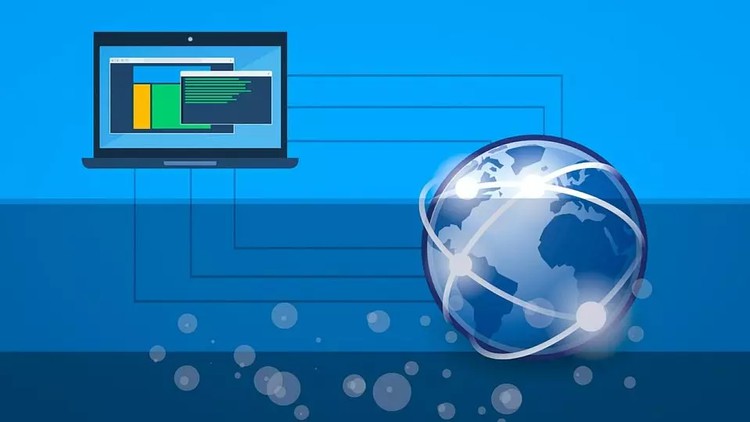
Overview, OSI Model, TCP/IP Model, Packet Structure, Addressing, Addressing Classes, Subnetting, VLSM, etc.
What you will learn
Understand basic concepts of IPv4
OSI Model
TCP/IP Model
Packet Structure
Addressing
Address Classes
Subnetting
VLSM
Reserved Addresses
Packet Flow in the Network
Description
IPv4 Tutorial
Internet Protocol version 4 (IPv4) is the fourth version in the development of the Internet Protocol (IP) and the first version of the protocol to be widely deployed. IPv4 is described in IETF publication RFC 791 (September 1981), replacing an earlier definition (RFC 760, January 1980). This Course will help you in understanding IPv4 and its associated terminologies along with examples.
You will be learning on the following Topic :-
- Over View of IPv4
- What is Networking?
- Hosts
- Media
- Hub
- Switch
- Router
- Gateways
- Firewall
- Host Addressing
- What is Networking?
- OSI Model
- Application Layer
- Presentation Layer
- Session Layer
- Transport Layer
- Network Layer
- Data Link Layer
- Physical Layer
- TCP/IP Model
- Application Layer
- Transport Layer
- Internet Layer
- Link Layer
- Packet Structure
- Addressing
- Unicast Addressing Mode
- Broadcast Addressing Mode
- Multicast Addressing Mode
- Hierarchical Addressing Scheme
- Subnet Mask
- Binary Representation
- Addressing Classes
- Class A
- Class B
- Class C
- Class D
- Class E
- Subnetting
- Class A Subnetting
- Class B Subnetting
- Class C Subnetting
- VLSM
- Reserved Addresses
- Private IP Addresses
- Loopback IP Addresses
- Link-local Addresses
- Packet Flow in the Network
- MAC Address
- Address Resolution Protocol (ARP)
- Proxy Server
- Dynamic Host Control Protocol (DHCP)
- Domain Name System (DNS)
- Network Address Translation (NAT)
Audience
This course has been designed to help beginners understand basic concepts of IPv4 required to work with any TCP/IP based protocols. After completing this tutorial, you will find yourself at a moderate level of expertise of IPv4 from where you can take yourself to next levels.
Prerequisites
Before you start proceeding with this tutorial, I’m making an assumption that you are already aware of basic computer and network concepts such as what is a protocol, why do we need protocol, Network Layers, etc.
Content